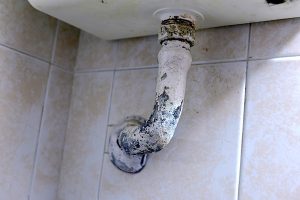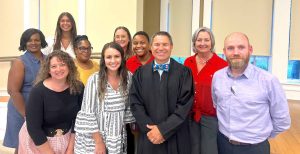By Don Dixson
Special to The Citizen
It truly is amazing how fast time passes, but that may not be so for the person who has a chronic pain problem. If you are living with pain, it may be time to step back and take stock of the process that you have endured this past year (or years) to help you live with your pain. Are you on a steady diet of pain medications? Have you had the injections in your spine that were supposed to get rid of your pain, but didn’t? Just how many trips to the doctor have you made in 2010 or, for that matter, a number of years?
All too often, pain patients are led to believe that they just have to “learn to live with” their pain. At Outcome Medical of Georgia, we don’t share that view point. We have discovered, over the years, that the cause or reason for a person’s chronic pain problem has often long been resolved, yet their pain remains. There are many reasons for this, but one of the most common reasons is that health care professionals frequently overlook the neuropathic component, (damaged or injured nerve cells) of pain and focus on other causes for chronic pain. The reality is, neuropathic pain does not respond very well to medications, so many patients spend years taking pain medications that have little to no effect on eliminating the pain. As a result, the pain medications they live with, along with the side effects of these medications, substantially reduce the quality of their lives.
By 2006, the death rate for women in this same age category rose to 273 percent, nearly fourfold, due to poisoning from powerful pain killers. The negative impact of these powerful pain killers is forcing many chronic pain sufferers to look for alternative forms of treatment to help them deal with the pain.
Outcome Medical of Georgia is attracting a growing number of these patients because we have been very successful in treating pain with our non-drug medical protocol. This protocol combines two physical medicine procedures to treat the reason for the pain. The protocol begins with a therapeutic series of non-steroid peripheral nerve blocks which are performed using ultrasound guidance to assure accuracy of needle placement.
The nerve blocks are followed up with treatments utilizing a very powerful electronic pulsed frequency which is applied through the skin. This process helps to deliver the medication directly into the nerve cell. It is the pulsed frequency technology that has proven to be extremely effective in treating neuropathic pain such as the pain found with diabetic neuropathy and all other peripheral neuropathies characterized by pain, tingling, and numbness in the feet or hands.
The problem with much of the treatments for pain, including pain medications, is that they focus on suppressing the pain signal to the brain, but do nothing to address the root cause for the pain, which are the injured cells.
Visit www.outcomemedicaloga.com to learn more about this non-drug treatment. Our office number is 770-487-0029, and our doctors will be happy to discuss your chronic pain situation with you.
Don Dixson has been in health care management for over 20 years working with a wide variety of physicians. He has written articles on health for many magazines and newspapers during his career.












Leave a Comment
You must be logged in to post a comment.